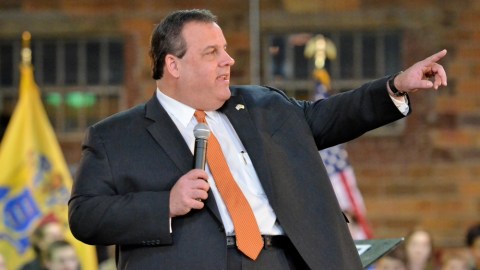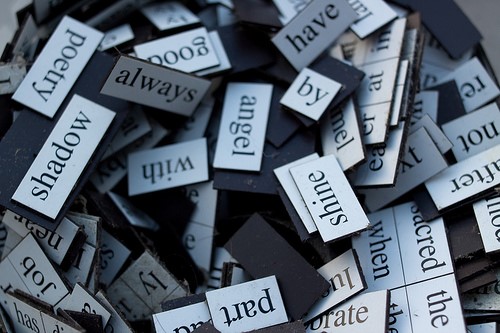Chris Christie or Rand Paul?

This article originally appeared in The Daily Caller. You can read the original here.
Mathematically, the odds are against either New Jersey Governor Chris Christie or Kentucky Senator Rand Paul becoming president of the United States. Of all the millions of eligible Americans throughout history, including many thousands of successful politicians, the number of individuals who have achieved the alchemy of talent, timing, and luck to attain that high office is a mere 43 (counting Grover Cleveland twice).
Even among the dozen or so preferiti who get talked up on a quadrennial basis, there can be only one.
And while it seems plausible that one or both of Christie and Paul will run for president in 2016, their prospects for success are less significant than the philosophy each man represents.
As the recent, well-publicized squabble between them demonstrates, while these two men share a party, they embody vastly divergent views of America. Christie sounds much like a robust Republican of the recent past, prioritizing security and strength in the face of foreign enmity; Paul, meanwhile, avers that many of the direst threats facing the nation are domestic in nature, including and especially the power and intrusiveness of our federal government.
In short, they have very different ways of defining danger, and defending freedom.
The shorthand has been that Christie represents the Republican “establishment,” while Paul champions its “libertarian” or, if you like, “Tea Party” faction (though the latter moniker carries considerable additional baggage).
In modern parlance, you will find defenses of Christie in the columns of major publications, whereas Paul’s supporters can be read in the “comments” section.
The recent brouhaha was touched off by comments Christie made at the Aspen Ideas Festival in Colorado, in which he called Paul’s brand of libertarianism a “dangerous thought,” termed his objections to the National Security Agency’s surveillance programs “esoteric,” and dared NSA critics to present their case to the “widows and orphans” of 9/11.
Paul responded by offering Christie a dictionary, since a program that monitors every person in America is something other than “esoteric.” From there, the spate descended into unbecoming silliness about bacon and who has time for a beer with whom, but their initial disagreement represents a crucial question for their party, and for America. To wit, have we sacrificed too much freedom in the name of security?
This is a discussion that Republicans, and the country, must have.
Many will say that Republicans did not object to the security state when it was being constructed by President George W. Bush, and that’s fair enough. But as government surveillance expands and the militarization of American life increases in the second term of a Democratic president, perhaps we can shoulder bipartisan responsibility and ask: What would we like to do next?
“Remember 9/11” is a worthy and, one hopes, eternal commemoration of those who were killed that day, but it cannot serve as an indefinite rationale for egregious conduct. As a matter of course and reason, rallying cries are temporary. Were they not, some Canadian could say, “Remember the War of 1812” and punch you in the face.
The difference between September 10 and September 12 is less about capabilities than mindset. We were not attacked because the government was unable to track the phone calls and emails of every American. Rather, on an institutional and individual basis, Americans had taken a holiday from history through the 1990s, not recognizing that the terrorist acts of that decade represented a war already underway.
As others have noted, by the time the passengers of Flight 93 learned the fate of the other planes, and opted to overpower their hijackers, Americans had already twigged to the new reality, and inoculated themselves against similar attacks. The passengers who subdued underwear bomber Umar Farouk Abdulmutallab on Christmas Day 2009 reinforce this view.
Notwithstanding these instances, are the terrorist threats we face really so vast and various that we must countenance ubiquitous government surveillance?
Freedom is the issue. As conservatives and liberals disagree over where market failure occurs, demarcating the point at which government should intervene, Paulites and Christiecrats differ over which approach is most effective to safeguard liberty.
Must the security state be maintained, as Christie argues, or is that very state the principal threat to the freedom it purports to defend, per Paul?
Which man’s approach is more consistent with America’s values, and which will preserve its liberty for the future? Can there be reconciliation of their views?
For the GOP, perhaps the strongest option would be a genuinely articulate candidate who can speak the language of traditional Republicans, while embracing the vision of a rebirth of freedom (Sen. Ted Cruz, please call your office).
Then again, maybe none of this will matter. In 2016, as in 2012, perhaps Americans will opt for more of the same and send another Democrat to the White House (or watch a Christie-Paul ticket win, like, 48 states).
But regardless of who is on the ballot, the visions embodied by Chris Christie and Rand Paul present Americans with a momentous choice.
Theo Caldwell is the author of Finn the half-Great.
Image courtesy of Shutterstock





